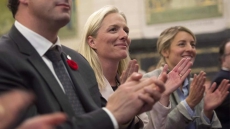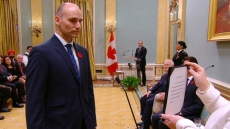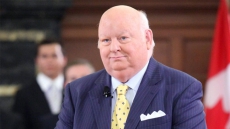OTTAWA — The Bank of Canada says it would consider bumping its trend-setting interest rate into negative territory if the country ever faced a major economic shock, although governor Stephen Poloz said such a move is unlikely.
Still, here are three questions about negative benchmark interest rates, answered:
Why would anyone accept negative rates?
Sub-zero interest rates can still be attractive to investors. That's because withdrawing actual cash to avoid a negative rate costs even more money — especially in large sums, said CIBC chief economist Avery Shenfeld.
"You're going to have to have a big vault and a Brinks truck is going to have to go get the money and you're going to have to guard it and so on," Shenfeld said.
"So, you can actually charge, basically, for very short-term deposits."
Shenfeld also said that any hit is unlikely to be major because it's an annual rate of interest. For example, he said an annual rate of interest of negative 0.3 per cent on a given day would likely be trivial compared to the costs of transporting, storing, insuring and protecting the cash.

On top of that, by leaving money where it is, an investor would retain the convenience of being able to move it electronically.
What are some examples of where this has been done?
Shenfeld said the European Central Bank adopted below-zero policy rates, in part, because governments there refused to launch fiscal stimulus.
In Switzerland, the central bank needed to drop its rate into the negative because it wanted to keep the country's currency from appreciating against the Euro, he added.
"There were very specific reasons why we had it in Europe and it would take a lot to get to that point in Canada," Shenfeld said.
"It's probably not a weapon of choice for Canada. We've got a federal government that is prepared to use fiscal stimulus."

What would applying a measure like this mean for the average Canadian?
Probably not a lot, Shenfeld said.
He doesn't think such a move would push retail-deposit and mortgage rates into a negative zone. Besides, he added, Canadians already hold chequing accounts that pay zero rates.






